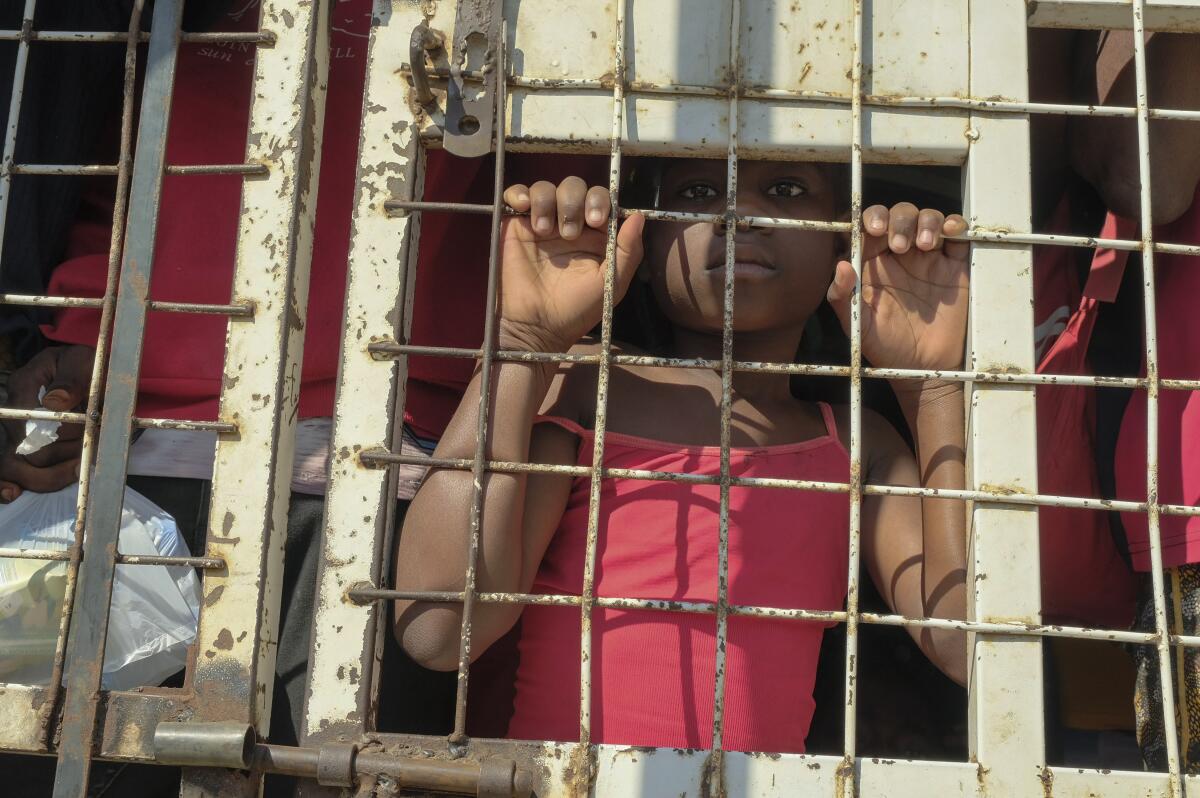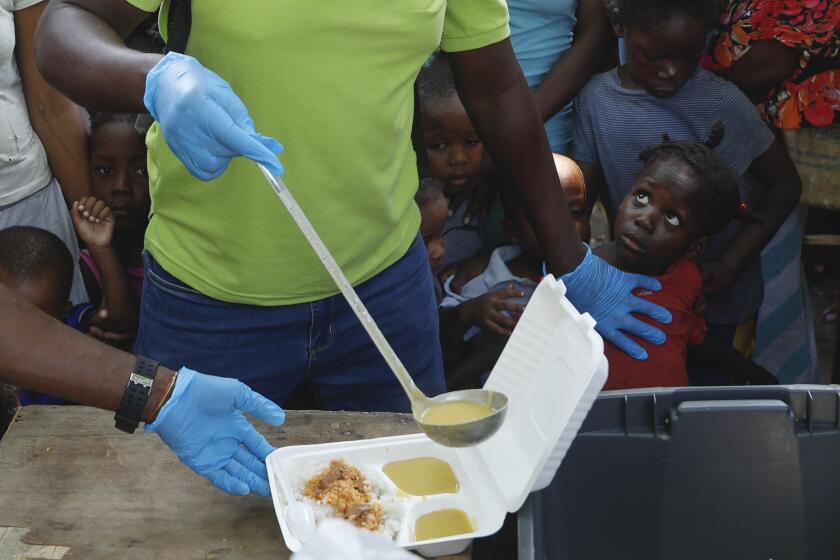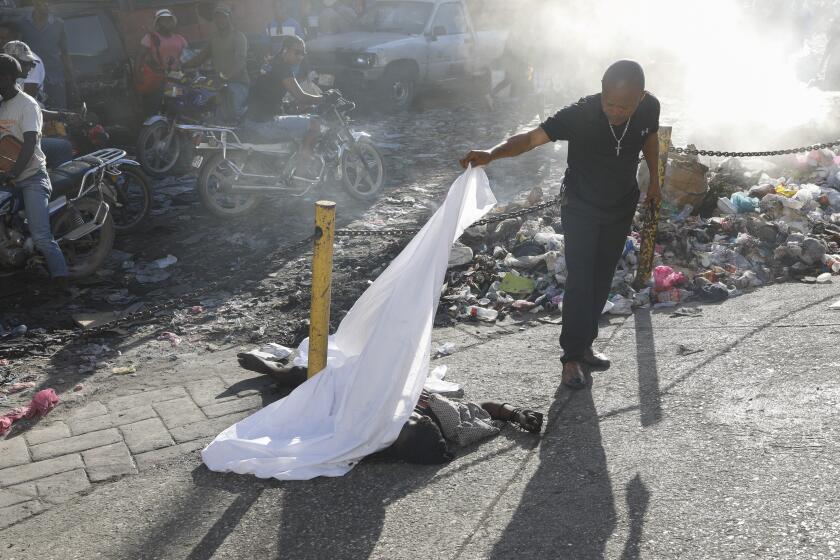Dominican Republic urged to stop deportations to Haiti as people flee gang violence

- Share via
DAJABON, Dominican Republic — Human rights activists are calling on the Dominican Republic’s government for a temporary reprieve in deportations as neighboring Haiti’s crisis spirals and people attempt to flee over the closed border from a surge in deadly gang violence.
Small trucks with customized cages are ferrying dozens of Haitians every day from a detention center in San Cristóbal to the border on the island of Hispaniola as the gang attacks paralyze parts of Haiti’s capital.
“If the government could postpone or diminish the push for deportations, it would be an achievement… an important contribution to the Haitian population,” said William Charpentier, coordinator for the Dominican-based National Coalition for Migrations and Refugees.
Charpentier said his organization has received complaints about Dominican authorities allegedly bursting into homes to arrest people believed to be Haitians, breaking belongings and extorting them at times.
The United Nations also has called on the Dominican Republic and other countries to halt deportations, noting that Haiti is extremely unsafe.
Some 1.4 million Haitians are on the verge of famine, and more than 4 million require food aid, sometimes eating only once a day or not at all
Roberto Álvarez, the Dominican Republic’s foreign minister, told reporters that the deportations are a result of a national security policy and that there is no choice but to continue them.
“We do it respecting international conventions and human rights treaties. We are not perfect. From time to time, situations occur. We try to correct them immediately,” he responded when asked about allegations of abuse.
More than 23,900 people have been deported this year, according to the Dominican government. More than 4,500 have been deported this month.
Scores of people have been killed since the attacks began on Feb. 29 across Port-au-Prince, with gangs targeting police stations, the main international airport that remains closed and Haiti’s two biggest prisons, with more than 4,000 inmates released.
The attacks have left homeless about 17,000 people who have fled their neighborhoods, according to the U.N.
Gangs have attacked two upscale neighborhoods in Haiti’s capital in a rampage that left at least a dozen people dead in surrounding areas.
“There is a lot of calamity to eat, a lot of fights. There is no life,” said Suson Chalas, a 32-year-old street vendor who lives in the Haitian border town of Ouanaminthe.
Alexis Yard, a 45-year-old Haitian who was recently at a bilateral market along the border, said he supports the presence of a foreign military force to help quell gang violence in his country.
“What we want is a change, to live well, to eliminate crime and be able to move freely about the country,” he said.
Plans for a U.N.-backed deployment of a Kenyan police force to fights gangs in Haiti have been temporarily halted, with the East African nation saying the force would be deployed once a transitional presidential council is in place to lead Haiti.
The council, which has yet to be created, would be responsible for selecting an interim prime minister and a council of ministers. Last week, Prime Minister Ariel Henry said he would resign once the council is established.
Martin Adames Alcantara writes for the Associated Press.
More to Read
Sign up for Essential California
The most important California stories and recommendations in your inbox every morning.
You may occasionally receive promotional content from the Los Angeles Times.












